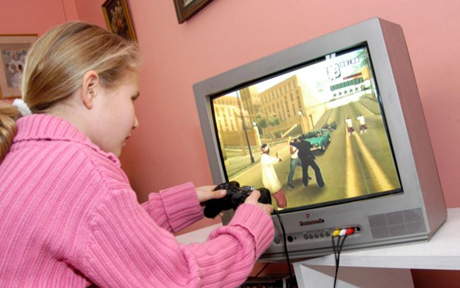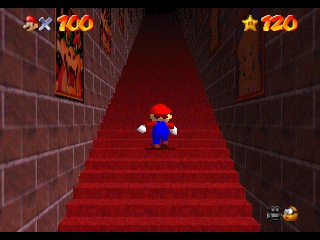[FACT OR FAKE #45] Playing Video Games Will Make You Dumb
When many adults think of video games, they envision bombs, bangs and blood. As a result, many parents try to restrict their children's gaming time. They also believe that playing video games will make their kids dumb.
We've all heard people (mostly elderly) nagging about video games, haven't we?
Declarations such as "it rots your brains" (previously applied only to TV) and "it doesn't teach you anything" are common when the elderly or uninformed are expressing themselves on the nature of video games
The common belief among these people is that playing video games makes you dumb
Back in 2013, Chinese Academy of Social Sciences in Wuhan, Hubei province released a report showing that:
"More than half the city's teenagers have less understanding about life and death than primary school children. The reason the intermediate school children were deemed "dumber"? Because of video games...
The CASS of Wuhan said they surveyed most of the city's minors about their thoughts on life and death. While surveying an unknown number of young people, the survey found that 81.5 percent of all fifth graders did not believe in reincarnation and that death was final while 61.4 percent of intermediate and high school students believed in reincarnation.
theinquirer.netWhile there doesn't seem to be anything wrong with believing in reincarnation, the director of CASS Wuhan, Dong Shi, says that it is an issue. In his report, Dong said that the children's "misunderstanding" of death is a dangerous notion created by video games. "Children don't come into contact with death, and the subject is fairly taboo," said Dong. "However they come into the concept of death in video games and other media. Virtual death is not ubiquitous and to immature children, video game resurrection can create a disregard for life. They might actually think they can be revived."
Let's assess: The assumption, based primarily on techno-phobia and nostalgic dis-interest for novelty (especially computers), has yet to be supported by any empirical research, though there are of course common sense arguments underlying this reasoning, for example:
First, children are getting fat, which we blame on insufficient exercise (this is why so many game consoles have shifted from a more static gamer to a physically mobile and active one).
Second, the time spent playing computer games is arguably "stolen" from other activities - reading Philosophy, solving complex mathematical problems, and writing poetry - these activities, like playing football, are deemed "superior" to virtual games.
Third, the nature of most computer games, at least the popular ones, is believed to promote violence: from "Call of Duty" to "Angry Birds", the most popular games have an important component of violence and children may be turning into Tarantino characters.
Yet there are counter-arguments to each of those points. For instance:
An unhealthy diet is in fact much more detrimental than lack of physical activity (and in the past 50 years diets have deteriorated much more than physical activity levels declined). Then, there is the issue of what children find interesting: Do you really think kids would be spending time on Wikipedia or Google Scholar if computer games didn't exist? That is like thinking that in the absence of easy temptations (be it food, women or men) people would "be good" and control themselves.
Finally, virtual violence is just a reflection of real-life violence and the games are designed to appeal to children - true, there is "violence inflation" as kids want more and more intense sensations and they habituate to violence levels; but let's not forget that games enable kids to "act out" violence and do catharsis (without actually hitting or injuring other "real" people). Besides, it is more dangerous to do most sports.
To be clear; this analysis is not an attempt to promote computer games here, but their drawbacks have probably been exaggerated, and few have spoken about their advantages
First, computer games have made kids techno-savy in a way adults are not, and they appeal to their vivid imaginations with a fantastic alternative to reality (enabling them to "escape" their boring life routines).
Second, computer games require skills, and those skills are clearly transferable to other tasks. In fact, there is evidence that in the past 50 years IQs have been increasing in all industrialised nations, and technology clearly plays a part here as increases are found in computational intelligence (abstract reasoning skills and speed of processing).
forbes.comFACT: Video games can actually improve your brain function and make you smarter.
But, like anything else as there is always the possibility of too much of a good thing, excessive gaming is still not recommended.
Clever stuff: Players in Minecraft and other games have shown amazing creativity
Image via telegraph.co.ukWATCH: Scientists of AsapScience explain how video games can actually improve your brain function and make you smarter:
So, the next time you feel tempted to ask the kids to turn off their video games, you might want to reconsider
One of the reasons for this is that video games require you to make strategic decisions, which in turn can help develop problem-solving skills and prepare you for the type of fast decisions you need to make to succeed in the real world. Other experts feel that video games can help build critical thinking.
Surprisingly, video games can also be a good tool for learning social skills. This is especially true of multiplayer online games that require collaboration among players in order to succeed and reach an objective. Many games have their own forums and bulletin boards, where players can connect with each other and build a sense of community. Perhaps more importantly, video games can be an excellent tool to teach kids that failure is OK and that you can always dust yourself off and start again.
go.com






